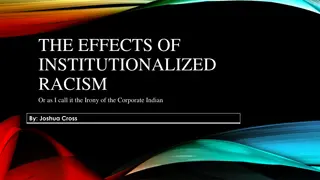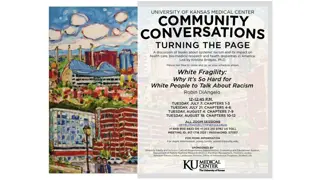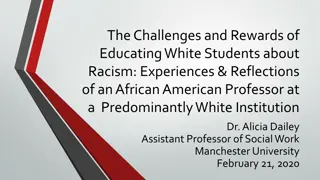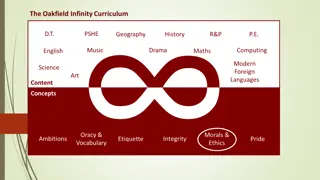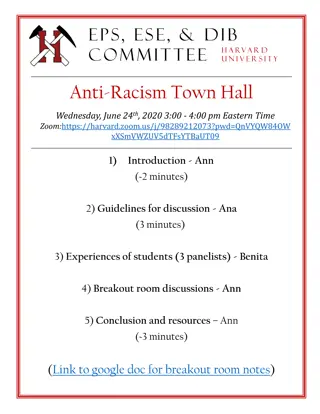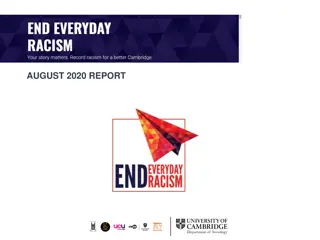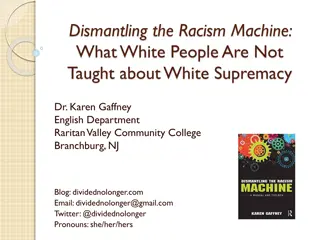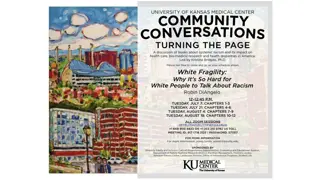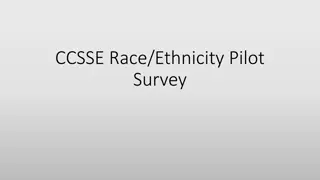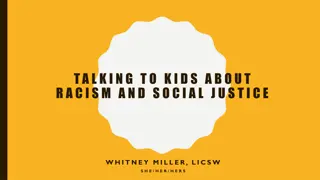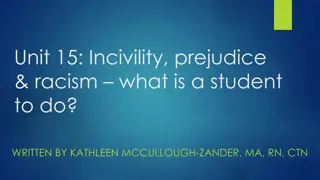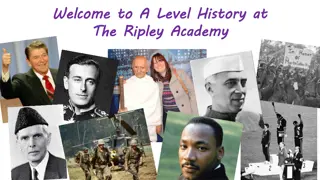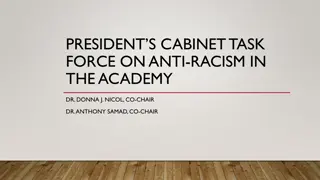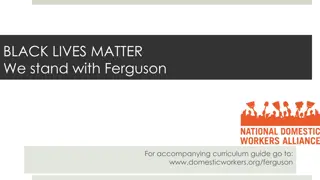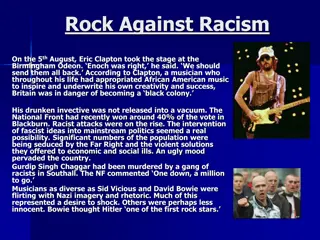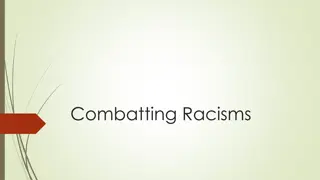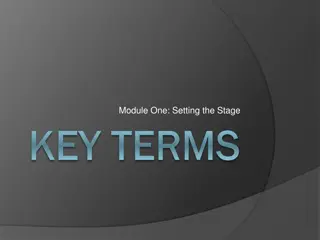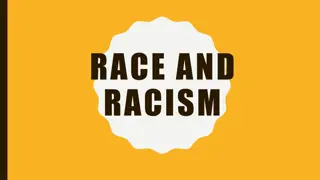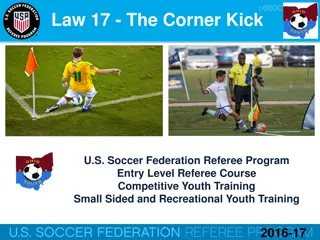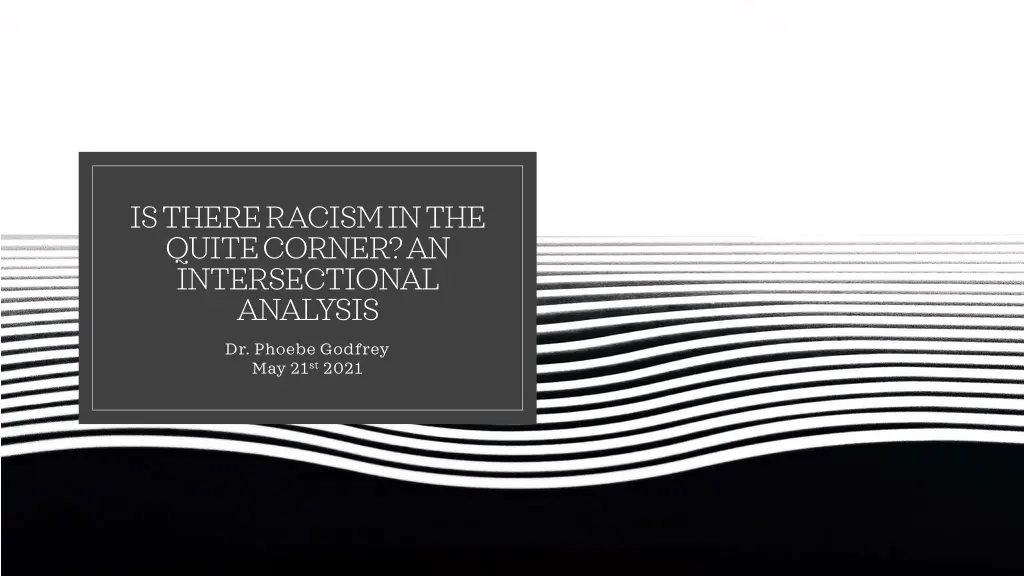
Racism and Intersectionality Exploration by Dr. Phoebe Godfrey
Delve into the examination of racism and intersectionality through the insightful analysis presented by Dr. Phoebe Godfrey on May 21st, 2021. Discover the nuances of oppression, privilege, and the complexities of societal structures affecting race, class, gender, sexualities, and more.
Download Presentation

Please find below an Image/Link to download the presentation.
The content on the website is provided AS IS for your information and personal use only. It may not be sold, licensed, or shared on other websites without obtaining consent from the author. If you encounter any issues during the download, it is possible that the publisher has removed the file from their server.
You are allowed to download the files provided on this website for personal or commercial use, subject to the condition that they are used lawfully. All files are the property of their respective owners.
The content on the website is provided AS IS for your information and personal use only. It may not be sold, licensed, or shared on other websites without obtaining consent from the author.
E N D
Presentation Transcript
IS THERE RACISM IN THE QUITE CORNER? AN INTERSECTIONAL ANALYSIS Dr. Phoebe Godfrey May 21st2021
Thanks for inviting me .. Who are you? Who Am I? About Me Why are you here? A white middle-class, middle-aged, lesbian, married to a woman, leftist European-American Sociology Associate Professor in Residence What do you hope to learn about others (usually when white talk about racism we want to focus on the others ) ? Have been teaching on race / class / gender / sexualities for over 20 years About yourself? Currently my focus is on how these all intersect (more on that in a minute) and are in our culture in their oppressive forms- racism / sexism / classism (why is that not really a word?) / homophobia etc the roots of climate change and environmental destruction . What do you hope to do with this knowledge about racism in the Quite Corner ? We ll take a moment for you to think of answers ..we will aim to share them later I don t lecture I engage and ask my students, as I will ask you to participate with me in dialogue, discussion, exploration
Yesthere is racism everywhere We re going to pause and see what that feels like.. Rhonda McGee in her book The Inner Work of Racial Justice : Healing Ourselves and Transforming Our Communities Through Mindfulness ..introduces the idea of The Pause to allow idea and insights to take root in our minds and bodies and to question how they make us feel and use those feeling as insights into how and where we need to work and grow Again we will share later
Intersectionality - Kimberle Crenshaw The concept originated with Legal theorist Kimberle Crenshaw and her work with racial and gener discrimination cases. There was no way at the time to recognize how these two forms of discrimination intersect As she states Intersectionality was a prism to bring to light dynamics within discrimination law that weren t being appreciated by the courts, Crenshaw said. In particular, courts seem to think that race discrimination was what happened to all black people across gender and sex discrimination was what happened to all women, and if that is your framework, of course, what happens to black women and other women of color is going to be difficult to see. I will read Let s pause
Who are you intersectionally speaking? Intersectionality has always been about challenging inequality .,. It is theory and praxis .Talking about inequality is one thing ..theory to change inequality to be more equal is something else Talking about how we must change is something else again and again Let s look at the chart and take 5 minutes to identify your identities .how many give you privledge? How many give you forms of oppression? How do the intersect? Link back to how you answered Who Am I ? What do you notice?
Discussion 10 minutes? Lets start going around and speaking about Who are you as you answered the first time name, pronoun, ..etc (did you mention race / class/gender / sexuality..etc? If not why not? When do we mention these identities more? Go back to your chart privilege tends not to be identifies but oppression is ..why..) Go around share one reason you are here? Go around share how the question about racism made you feel? Go around how does realizing that we cannot address racism unless we also address sexism / homophobia and all the other oppressions change your view of the question of this talk? Then we will come back pick one person to share and report back- but don t share anything personal speak in general or for yourself.. Anything else ? Final questions?
Radical Empathy -Isabel Wilkerson Radical empathy, on the other hand, means putting in the work to educate oneself and to listen with a humble heart to understand another's experience from their perspective, not as we imagine we would feel. Radical empathy is not about you and what you think you would do in a situation you have never been in and perhaps never will. It is the kindred connection from a place of deep knowing that opens your spirit to the pain of another as they perceive it. Empathy is no substitute for the experience itself. We don't get to tell a person with a broken leg or a bullet wound that they are not in pain. And people who have hit the caste lottery are not in a position to tell a person who has suffered under the tyranny of caste what is offensive or hurtful or demeaning to those at the bottom. The price of privilege is the moral duty to act when one sees another person treated unfairly. And the least that a person in the dominant caste can do is not make the pain any worse. (p. 386)
Wrap up? What is your take away? What else needs to be discussed? What work do you you need to do? What work do we we need to do? How can you / we act on what Wilkerson says that it is our moral duty to act ? Other ?


